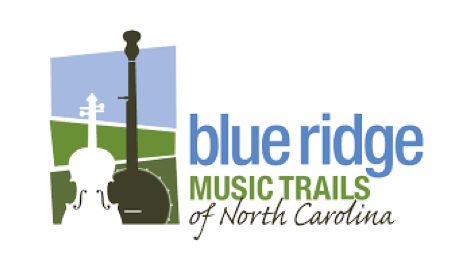
The Mountain Banjo King
 First and foremost, Raymond Fairchild was one of the finest banjo players who ever walked the face of the earth. He had a storied reputation for incredibly strong and powerful pickin’ on the five-string instrument — a sentiment also said about his moonshine from behind closed doors.
First and foremost, Raymond Fairchild was one of the finest banjo players who ever walked the face of the earth. He had a storied reputation for incredibly strong and powerful pickin’ on the five-string instrument — a sentiment also said about his moonshine from behind closed doors.
On Oct. 13, 2019, Fairchild passed away unexpectedly at the age of 80. Though his music and influence will live on for generations, the bluegrass industry and Western North Carolina have lost a true original, one of the last of his kind in rural Southern Appalachia.
Before he passed away, Fairchild sat down at his Maggie Valley Opry House for what would be his last interview. And though his fingers seemingly wrapped around a walking cane more than his trusty banjo at the time, he remained one of the finest musicians who ever picked up the five-string acoustic instrument — alive or six feet under.
He was proud of his Cherokee blood and of being a mountain man. He was a native of Haywood County and the Great Smoky Mountains, forged from the strength of humble beginnings, and always figuring out ways to survive not just life, but simply another day in a sometimes-cruel world.
He was sincere as he was skeptical on my being there. Fairchild is a man of few words, and yet it only takes a few words to truly understand quite possibly the most misunderstood figure in bluegrass.
In remembering the essence of Raymond Fairchild, you must never forget where you came from, the roots at the foundation of your life, personal growth, and journey as a human being in whatever time you may have on this planet.
“I just count myself another mountain picker. I don’t think I’m no better than anybody else, but I think I’m as good as any of ’em — that’s the legacy,” Fairchild said. “When they ask me when I’m going to retire, I say when somebody comes along and beats me at picking the banjo — and they said, ‘you’ll never retire.’”
Aside from the unique dexterity in Fairchild’s fingertips, what’s just as awe-inspiring is the lightning-fast speed by which he played such intricate and complicated melodies.
“It just comes from the way I learned, I guess — I always liked to play fast. Of course, I can’t play that fast now,” Fairchild modestly stated. “And another thing, it all depends on who’s behind you. If the backup men can’t get it, you can’t either — they’ll drag you down.”
Many of the photographs and concert posters on the walls of the Opry House are yellowed and dusty. The faces and names are of bluegrass and country music legends — all friends of Fairchild’s, most long gone from this earth.
“There are ones I really miss — The Lewis Family, Ralph Stanley, Bill Monroe,” Fairchild solemnly said. “It just brings back old memories. Sometimes it’s good, sometimes it’s bad, according to the mood you’re in. Sometimes you want to see them memories, sometimes you don’t. And a lot [of those faces] have done went on.”
Within the 65 years he’s played professionally, one moment sticks out more than the rest — the first time Fairchild took the stage at the Grand Ole Opry, held at the Ryman Auditorium in Nashville, Tennessee. Fairchild reckoned that initial appearance was somewhere around 1977 or 1978. No matter though, because it led to several other pickin’-n-grinnin’ sessions onstage at “The Mother Church of Country Music.”
“It was me and The Crowe Brothers — the greatest [three-piece] band that’s ever been together,” Fairchild reminisced. “A lot of people say their knees are shaking and they were nervous [being onstage at the Grand Ole Opry]. It didn’t bother me more than stepping out here [at the Maggie Valley Opry House]. But, I knew it was the highest you were going to go in this type of music — when you stand in front of them WSM microphones.”
As he sat back down in his chair in front of the Maggie Valley Opry House, Fairchild placed his cane beside him and reached for his banjo case. He unbuckled the latches and pulled out his old friend, those five strings that provided him with a life well-lived, one of musical glory and lore.
“Every time I pick up the banjo, I learn something. I still love a banjo guitar. I just love what I call mountain music,” Fairchild said. “What kind of future do you think I’ve got? Probably a short one. But, you just look back on it all, the music and the memories — if I had to do it over, I’d do it again.”
See Raymond Fairchild's Traditional Artist Directory profile here.
Listen to the Down the Road podcast Raymond Fairchild's unique style of playing here.
View more great content from our Down the Road magazine here.
From 2020 Down the Road – Bluegrass and Old-Time Music Guide by the Blue Ridge National Heritage Area produced in collaboration with Smoky Mountain News. Story by Garret K. Woodward.





